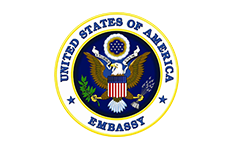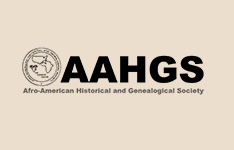This website is a digital reading book and a educational ‘digibook about a history that till 2009 did not exist in the collective memory of a country that has strong historical ties with the United States. It too has a long tradition in memorizing the liberation of the country in 1945. The idea to make a digital book and schoolbook Blackliberators.nl arose in 2017 after the publication of the book 'Children of Black Liberators- a hidden history' (Mieke Kirkels, Vantilt 2017) and is also based on a previous book ‘Van Alabama naar Margraten – memories of former gravedigger Jefferson Wiggins (Mieke Kirkels, self published 2014).
A website about the history described therein seemed a logical next step and the project African American Liberators in The Netherlands’ started end of 2017. The collaboration between the project and 51North, an award winning digital design and development studio based in NL., led to this digital book including a schoolbook, both in Dutch and in English. Stories in Blackliberators.nl are partially abridged adaptations of stories from the books of Mieke Kirkels, supplemented with many new stories and historical facts about African American liberators of WWII. In 2018, a new research started. Historian Sebastiaan Vonk’s research leads to new discovered stories about the stationing of Black troops in The Netherlands and of the 172 African American soldiers, buried at the Militairy Cemetery in Margraten (NL). New discovered stories will be added to blackliberators.nl. Please register for the newsletter to keep updated!
Het bestuur
De stichting werd in mei 2023 opgericht. Het bestuur van de stichting bestaat uit:
- Theo Bovens (voorzitter), oud-gouverneur provincie Limburg en Eerste Kamerlid
- Anita Broer, docent United World College Maastricht
- Stanley Nooitmeer, luitenant-kolonel Koninklijke Marechaussee en voorzitter Stichting Multicultureel Netwerk Defensie
- Camille Oostwegel, ondernemer en initiatiefnemer documentaire Het kogelgat van Château St. Gerlach
- Maureen Peters, kleinkind van een Zwarte bevrijder
De bestuursleden ontvangen geen vergoeding voor de werkzaamheden. Het projectleiderschap wordt momenteel ingevuld door historicus Sebastiaan Vonk.
Contact
Voor contact met de stichting, stuur een e-mail naar contact@blackliberators.nl.
Geschiedenis
Mieke Kirkels nam het initiatief voor dit digitale lees- en schoolboek. Het idee ontstond na het verschijnen van haar boek ‘Kinderen van Zwarte bevrijders: een verzwegen geschiedenis' (Vantilt 2017) en het daaraan voorafgaande boek ‘Van Alabama naar Margraten: herinneringen van grafdelver Dr. Jefferson Wiggins' (uitgegeven in eigen beheer 2014).
Het maken van een website over de geschiedenis daarin verwerkt en het oprichten van het project Black Liberators in the Nederlands leek een logische vervolgstap. Samenwerking met 51North (digital design en ontwerp), leidde tot dit digitale boek inclusief Digischool, een educatief onderdeel, zowel in het Nederlands als in het Engels. De verhalen in dit boek komen voor een deel voort uit de boeken van Mieke Kirkels, aangevuld met een groot aantal nieuwe verhalen en historische feiten over het aandeel van African Americans tijdens de bevrijding van Europa.
Thanks to:
Dr. Jefferson Wiggins (†2013), the first African American of WWII visiting the Netherlands in 2009 to share his memories of the years spent in the segregated US Army (Van Alabama naar Margraten 2014).and his widow Janice Wiggins.
Huub Schepers (†2016), who shared his life story at almost 70 years in april 2016. How it was to grow up as a child of an African American liberator in The Netherlands. Schepers’ story was the start of the oral history project ‘Kinderen van zwarte bevrijders’ and the book with the same title (Mieke Kirkels, VanTilt april 2017).
The ‘Children of Black Liberators’:
Rosy Peters, Els Geijselaers, Ed Moody, Wanda van der Kleij, Trudy Habets, Robert Joosten, Huub Habets, Petra, Cor Linssen, Donna Bastiaans, Maria Andres and their relatives for sharing their stories
Harie Rouvroye (†2018) for his help in the research for the stationing of Black troops in Limburg
Jo Fonsaer: filmerof portraits of great grandchildren of Black liberators: Diede van Dam, Noortje Schepers, Delano Geijselaers
Jan Kohlbacher for his contributionof historical papers and information about the only Black R&R in the history of the US Army in 1945.
Kees Ribbens for his support and advise on the research onderzoek
Stichting art Buro Limburg for help at the fundraising
Anita Broer for her inspiring and creative way of developping the international Digischool.
Dr. Jenny King, Margot Baar, Pamela Armstrong, Inga and Fenna Milbauer for the translations
And thanks to all friends and relatives who supported, advized in various ways, in fundraising, handing over imagery and links, for encouriging and – that above all: their shared passion to spread these stories.
Publications:
- From Farmland to Soldiers Cemetery (Mieke Kirkels, Jo Purnot and Frans Roebroeks, Stichting Akkers van Margraten 2009)
- Van Alabama naar Margraten – memories of gravedigger Jefferson Wiggins (Mieke Kirkels, self-published 2009)
- Kinderen van Zwarte bevrijders – een verzwegen geschiedenis (Mieke Kirkels, Vantilt 2017)
- Dutch Children of African American Liberators (Mieke Kirkels and Chris Dickon, McFarland 2020)
- From Alabama to Margraten - The Story of War Veteran Jefferson Wiggins in the Segregated US Army during World War II (Mieke Kirkels, Amsterdam University Press 2025)
We would also like to thank these institutions for their financial support:






Partners

